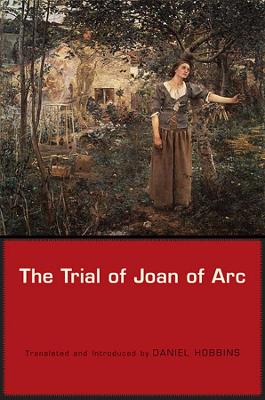
Briana @ Pages Unbound
Nonetheless, their questions about her religious upbringing—how much she knew about the faith, whether she believed the correct things, etc.—reflect a real concern about heresy. The Great Schism had recently divided the Church, three different men were claiming to be pope, and real heresies like Lollardy were gaining popularity. The Church was in danger of losing some of its authority.
Other questions the judges pose to Joan reveal the Church’s related concern about witchcraft. Contrary to popular belief, witch burnings were not particularly common in the Middle Ages, but rather a standard feature of later periods like the Renaissance. During Joan’s lifetime, the Church was only just beginning to fear witchcraft and to label actions that had been part of folk culture for generations demonic. Thus the judges ask Joan whether she used to dance around a “fairy tree” near her home, something that would have been viewed as innocuous if foolish in the past, but now determined to be a type of devil-worship. They also ask her quite random questions like, “Where is your mandrake?” without any type of lead-in, clearly hoping to catch her off her guard.
Joan’s clever and sometimes quite saucy responses to these questions are what make her trial transcript such a fun read. She is able to avoid most implications of heresy by giving the “correct” responses and to avoid being labeled a witch by claiming ignorance of any sorcery at all; she does not even know what a mandrake is for, much less does she have one. Even better are her quips in reply to questions like whether St. Margaret spoke English: “Why should she speak English? She is not on the English side.” Or whether St. Michael were naked: “Do you think that Our Lord has not wherewithal to clothe him?” She says her voices told her to “answer boldly,” and she does exactly that, even in the face of threats of torture or death. One does not have to believe that Joan is a saint or even that she heard voices at all to appreciate her great courage and humor. Her trial is a great read for any interested in religion, history, or just a strong heroine.
